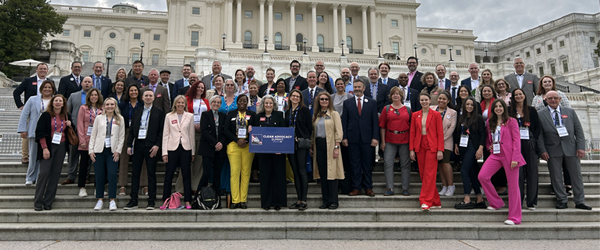What to Know About COVID-19 Variants
Mutations occur in viruses as they spread from person to person. Many variants of SARS-CoV-2, the virus that causes COVID-19, have arisen since the outbreak was first detected in late 2019 in China. But only a few have spread internationally.
The natural trajectory for any virus is that they mutate as they spread from person to person, and whenever there is a significant mutation that changes the virus, then a new variant develops. Sometimes new variants emerge and disappear. Other times, new variants persist. Multiple variants of the virus that causes COVID-19 disease have been documented in the United States and many other countries during this pandemic.
Currently there are five notable variants in the United States:
- Alpha (B.1.1.7) – First detected in the U.S. in December 2020. It was initially detected in the United Kingdom.
- Beta (B.1.351) – First detected in the U.S. at the end of January 2021. It was initially detected in South Africa in December 2020.
- Delta (B.1.617.2) – First detected in the U.S. in March 2021. It was initially detected in India in December 2020. Currently this is the predominant variant nationwide..
- Gamma (P.1) – First detected in the U.S. in January 2021. It was initially detected in travelers from Brazil, who were tested during routine screening at an airport in Japan in early January 2021.
- Lambda (C.37) – First detected in the U.S. in January 2021. It was initially detected in Peru in August 2020.
These variants seem to spread more easily from person to person than other variants, which may lead to more cases of COVID-19, especially in those that are not vaccinated.
COVID-19 continues to spread across the county and variants are circulating. Take steps to protect yourself and others from the virus:
- Get a COVID-19 vaccine
- Wear a mask that covers your nose and mouth
- Stay six feet apart from people who don’t live with you
- Avoid crowds and poorly ventilated indoor spaces
- Clean and disinfect surfaces that are touched often by people
- Wash your hands often with soap and water. Use hand sanitizer if soap and water aren’t available.
For more on the emerging COVID-19 variants and how to protect yourself, tune into this recent edition of GBACtv’s BioTalk.

















